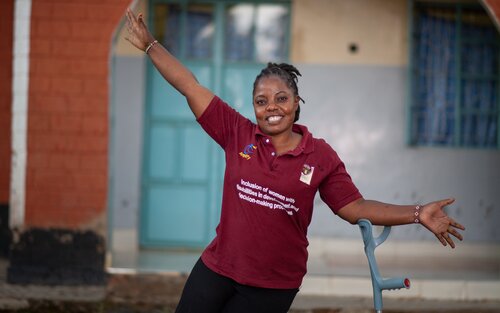Children with disabilities bear weights that they should not have to. One unacquainted journalist recently asked me during an interview, “were you, or are you a burden to your parents?”
In the interest of self-control, suitable replies to the overly insensitive question raced through my mind. “Why don’t you ask my parents!”, I thought to myself.
The more I thought of what to answer the more painful it became. It then dawned on me that this was actually the reality of children with disabilities. We are viewed as a burden to society, throughout the course of our lives.
There I was, all grown up, comfortably capable of checking myself into such interviews, a graduate nonetheless, and yet, the same prejudice still plagued me. Tears flowed as I attempted to answer her question.
I recently visited a well-known children’s home that has hosted children with disabilities for decades. They were in the process of closing down the home.
The Children’s Act 2017, Kenya, stipulates that all children’s homes are to be closed and the children integrated back into their respective families and communities.
“A child belongs to the village,” reads what I think is one of the greatest African sayings. However, as the close-down continued, it became apparent that a child with ‘disabilities’ does not belong to the village.
Worried parents.
“Is there another school or place I can take her? This child is too much work. Who will take care of her?” These are some of the questions that parents who were clearly desperate, asked. I remember asking myself, “What if there was a place where children with disabilities could be taken and forgotten about? What would happen to us?” Based on some of those desperate questions, I almost cried because I already knew what the answer was.
Susan Hampshire, a famous actress who struggled with words, once said that it is a lonely existence to be a child with a ‘disability,’ which no one can see or understand. You exasperate your teachers, you disappoint your parents, and worst of all, you know that you are not just stupid.” Sometimes I feel as though miss Hampshire was talking directly at me and those like me. I was born with cerebral palsy (CP), a congenital condition affecting a person's movement. Despite the CP, I believe that I have grown into a responsible citizen. I cook for my siblings and pay my taxes.
During the interview, I could easily have turned the question around: “Do you think they (my parents) were or are a burden to me?” However, it is not a competition of who is a burden or not. The question really is, “can we co-exist in a manner sensitive to each other’s needs?” I believe persons with disabilities have a lot to offer the society, if it begins to view us positively.
Children with disabilities are not a burden to their families and they must never be viewed as such. Sometimes it is the very society that should embrace them, that causes them to be alienated by their families.
This is especially so when insensitive comments are constantly made. At times, even tagged alongside the talk of curses and black magic and as we all know, a lie told to many times ultimately becomes the truth.
Unfortunately, some children with disabilities have grown up believing that they are indeed a burden to their families going by the way in which they have been raised. From my various interactions with those like me, I know it is a very painful thing to go through in one's life. I believe we can do better as a society.
A child with a disability means your family is cursed and other such backward narratives should not have a place in modern society. We must seek to be more informed in order to arrest the stigma. We must also prop our institutions to be more inclusive of persons with disabilities, whether in terms of accessibility or funding. The lack of inclusion also plays a role in society residing that persons with disabilities do not belong.
To my brothers and sisters with different abilities, you are not a burden. You never have been and never will. You are fearfully and wonderfully made. Always remember that.
I must say also, that I have been privileged to belong to a family with parents, including my mum and dad, that have loved, supported and appreciated me every step of the way. I have turned out great. A heart-felt thank you to them. It is my prayer that other parents will do likewise.
Maria Njeri

